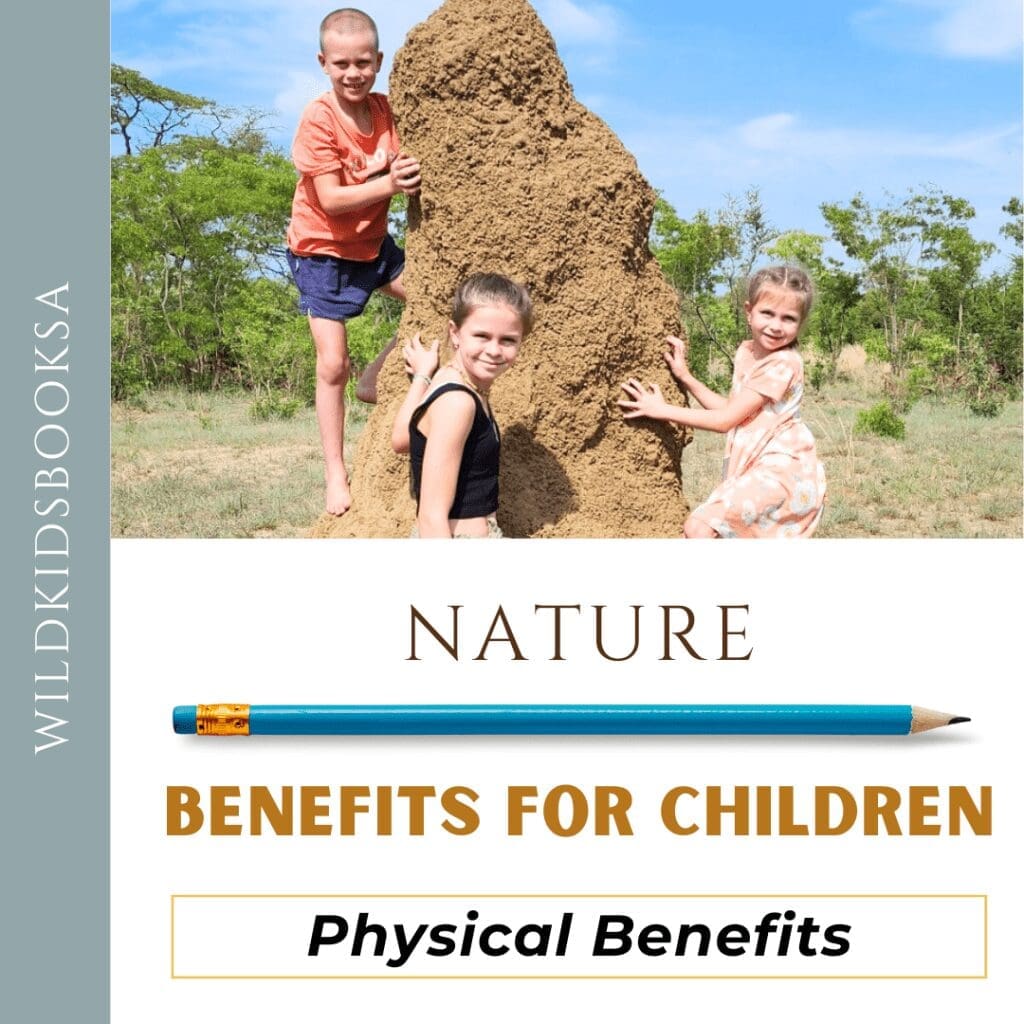
Nature Benefits For Children -Why is it so important to expose our children to more time in nature?

In our rapidly urbanizing world, children increasingly spend less time outdoors and more time in front of screens. This shift has profound implications for their physical health and overall well-being. Engaging with nature offers numerous physical benefits, fostering healthy development and laying a strong foundation for lifelong health. Let’s delve into the various ways nature positively impacts children’s physical health.
1. Enhanced Physical Fitness:
a) Increased Physical Activity
Children naturally engage in more physical activity when they are outdoors. Activities such as running, climbing, jumping, and exploring different terrains are inherently more physically demanding than sedentary indoor activities. This increased physical activity helps in:
b) Combatting Obesity
The rise in childhood obesity is a significant public health concern. Outdoor play is an effective countermeasure as it burns calories and encourages healthy eating as children who play outdoors are more likely to develop a healthy appetite and make better food choices.
2. Bone Health:
Vitamin D Synthesis: Exposure to sunlight is essential for the synthesis of Vitamin D, which is crucial for bone health. Vitamin D helps in calcium absorption which is essential for strong bones and teeth and aids in preventing diseases.
3. Improved Sensory Skills:
Nature provides a rich sensory environment that stimulates all five senses:
4. Enhanced Immunity:
Interacting with natural environments exposes children to a diverse range of microbes, which is beneficial for their immune systems a regular exposure to natural microbes helps in developing a robust immune system, reducing the risk of allergies and autoimmune diseases. It also Promotes gut health. When children come into contact with soil and plants, it introduces beneficial bacteria to the gut, which is essential for overall health and disease prevention.
5. Mental and Emotional Well-being:
While not directly physical, mental and emotional well-being significantly impact physical health. Nature plays a critical role in:
6. Encouraging Lifelong Healthy Habits:
Children who spend time in nature are more likely to develop a lifelong appreciation for the outdoors. This appreciation translates into continued physical activity throughout life, leading to sustained physical fitness and health.
7. Social Skills and Physical Play:
Outdoor activities often involve group play, which helps in developing social skills while also engaging in physical exercise. Activities like team sports, cooperative games, and group exploration encourage:
The physical benefits of children spending time in nature are profound and multifaceted. From enhanced physical fitness and bone health to improved sensory skills and immunity, the natural environment offers a holistic approach to nurturing a child’s growth. As we continue to urbanize, it is crucial to prioritize and facilitate opportunities for children to engage with nature, ensuring they reap the full spectrum of physical, mental, and emotional benefits that the great outdoors provides.
By encouraging children to spend more time outside, we not only promote their immediate physical health but also instill habits and values that will support their well-being throughout their lives.
Let’s make nature an integral part of childhood, fostering a healthier, happier generation.
Stay wild and curious,
Kayleigh


Copyright 2021. All rights of Local is Always Lekker (PTY) Ltd remain reserved. Company Registration Number: 2021/814980/07. Maintained By Gosmic Designs & Development (PTY) Ltd and Charlie G Designs (PTY) Ltd.
Shop Times:
Wed – Sun
09:00 – 16:00
Holidays:
Times do change, please reach out.
Festive Times

Copyright 2021. All rights of Local is Always Lekker (PTY) Ltd remain reserved. Company Registration Number: 2021/814980/07. Maintained By Gosmic Designs & Development (PTY) Ltd and Charlie G Designs (PTY) Ltd.